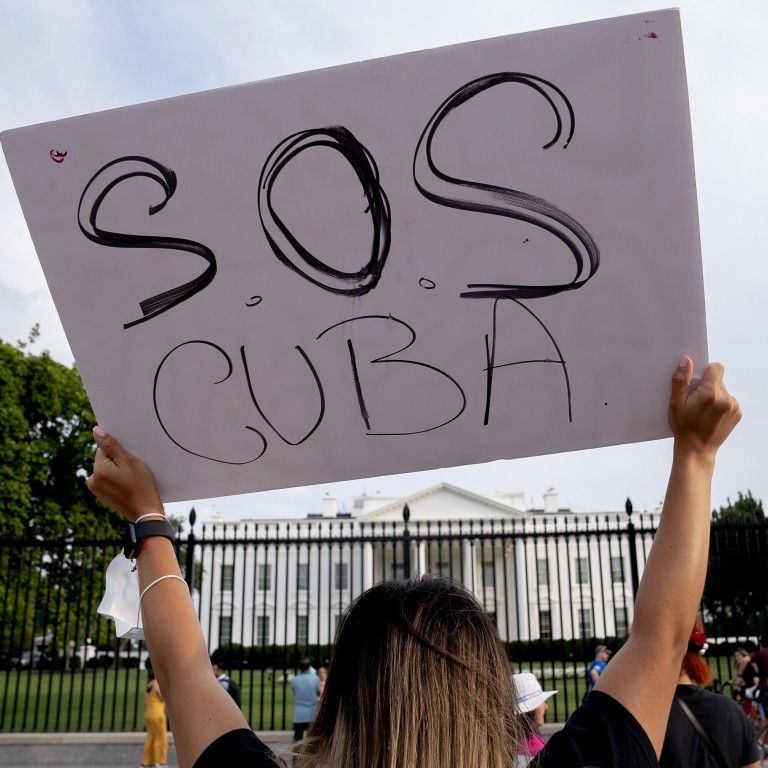
Joe Biden hits Cuba with more sanctions over its violent crackdown on protesters
- The sanctions target government ministers who are deemed responsible for the repression of protesters demanding more freedom, food and health care
- It is unclear what effect the sanctions would have, since few of the blacklisted individuals are likely to have assets or business dealings in the US
The Biden administration on Thursday announced a new round of sanctions against the besieged Cuban government for its violent crackdown on demonstrators.
Officials said the sanctions target specific members of the communist-ruled island’s government who are deemed responsible for the repression of protesters demanding more freedom, food and health care.
The measures come as Biden faces mounting criticism from hardliners in both political parties in Congress seeking stronger retaliation against Cuban President Miguel Diaz-Canel and his associates.
It is unclear, however, what effect the sanctions would have since few of those blacklisted individuals are likely to have assets in the US or business dealings with US firms.
Some conduct business in Europe and Latin America, and the US sanctions could have an effect there.
Republican Florida Senator Marco Rubio, a prominent hawk in Washington on Cuba, said the key was to erode confidence within Cuba’s security forces.
“This is welcome additional pressure,” he said on broadcaster MSNBC, “but more needs to be done.” He urged a diplomatic push by the Organisation of American States and other regional bodies, with Washington in the lead.
The US has maintained a stifling economic embargo since the early 1960s, soon after the late Fidel Castro led a revolution to topple a US-backed dictator. Castro soon imposed one-party communist rule on the island and limited many basic political freedoms while improving health and education services for much of the population.
Biden and his advisers, early in his administration, said they would begin to relax some of the harsh measures imposed by former president Donald Trump, who was reversing an opening overseen by his predecessor.
The Biden administration said it would revive travel between the US and Cuba and make it easier for Cuban Americans to send remittances to relatives. That has not yet happened.
Biden said on Thursday that officials were “reviewing our remittance policy to determine how we can maximise support to the Cuban people.”


